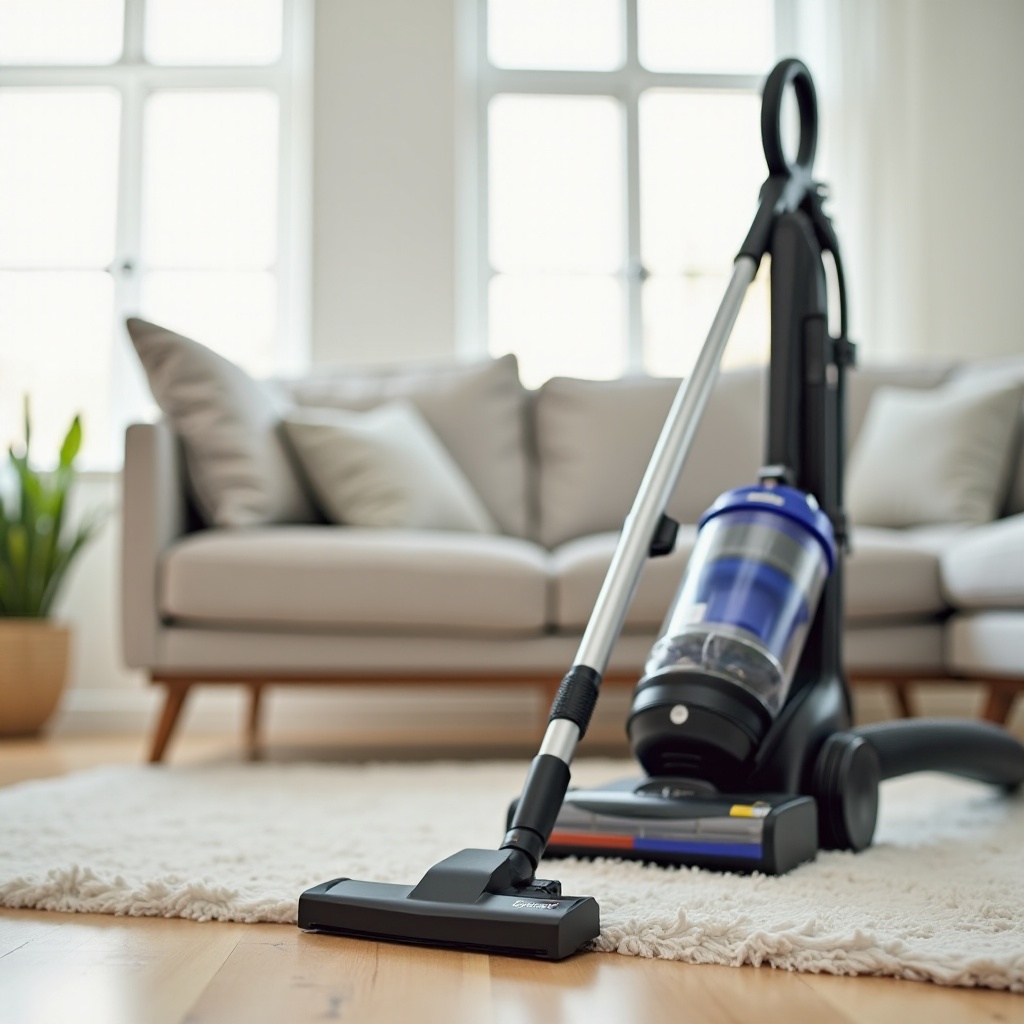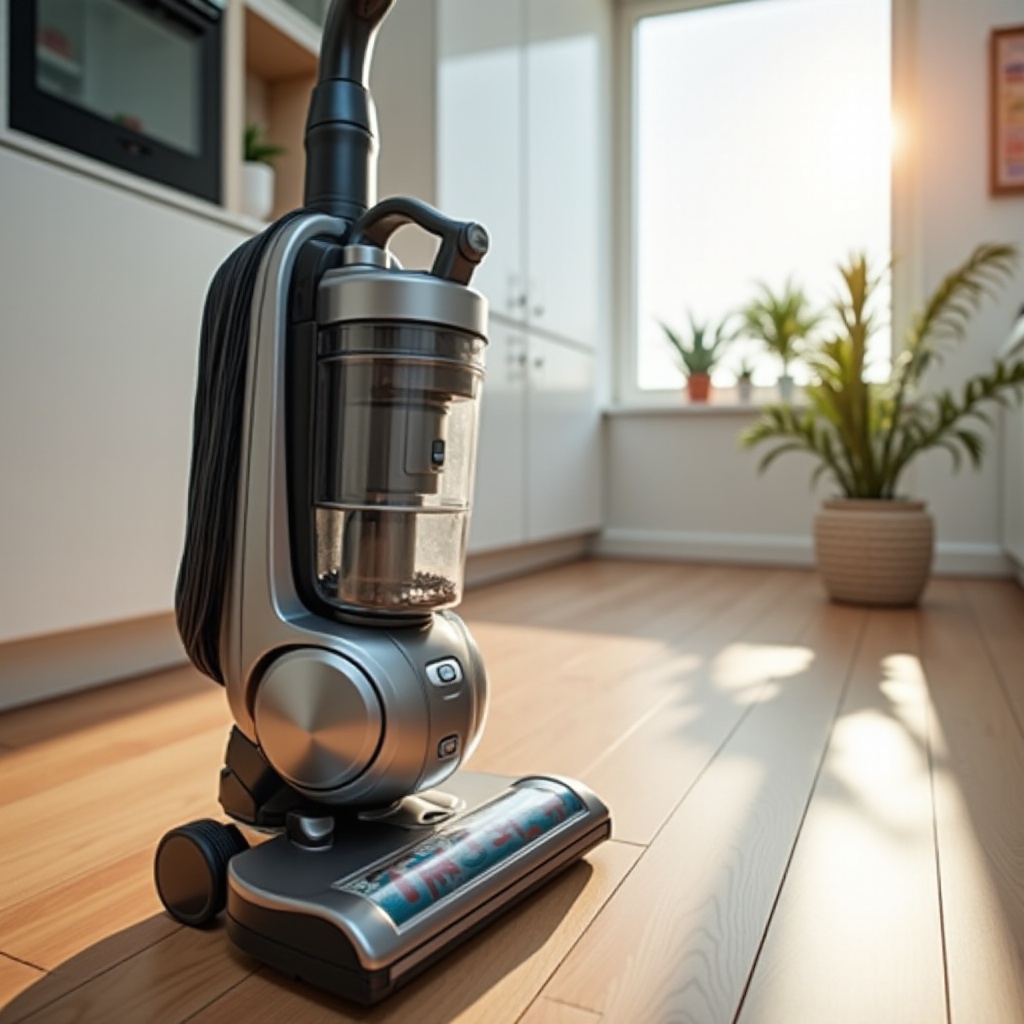Introduction
A foul-smelling vacuum cleaner is not only unpleasant but it can also reduce the efficiency of your cleaning device. Identifying the root causes of these odors and knowing how to address them properly can bring back the fresh feel to your home. The key is understanding what causes these smells and implementing regular maintenance and cleaning practices. This comprehensive guide will help you pinpoint specific problems and provide practical solutions to eliminate those unwanted odors coming from your vacuum cleaner.

Common Causes of Vacuum Cleaner Smells
Vacuum cleaners can accumulate a variety of debris, which may lead to unpleasant odors over time. Understanding these common causes is the first step in tackling the issue.
Dust and Debris Accumulation
Your vacuum cleaner collects dust and other types of debris each time you use it. Over time, the accumulation of these particles can create a musty or dusty smell, especially if they have been sitting in the vacuum bag or dustbin for too long without being emptied. Regular cleaning and maintenance are crucial to prevent this buildup.
Pet Hair and Dander
Pet owners may notice that their vacuum cleaners often emit a distinct smell associated with their furry friends. Pet hair and dander can get trapped in the vacuum’s filters, bags, and brushes, creating a strong odor if not cleaned effectively. Especially for households with multiple pets, special care and frequent cleaning are essential.
Food Particles and Spills
Vacuuming up food particles or beverages can cause your vacuum cleaner to smell unpleasant. These organic materials can decompose inside the dustbin or vacuum bag, leading to rotten odors. Ensuring you vacuum dry substances only and addressing spills immediately can significantly mitigate this issue.
Mold and Mildew
Vacuum cleaners can provide a breeding ground for mold and mildew, especially if they have been used to clean up wet debris or stored in damp environments. The presence of mold and mildew is often characterized by a musty or moldy smell emanating from your vacuum cleaner. Proper storage and ensuring that only dry substances are vacuumed up are key to preventing mold growth.

Identifying Specific Smells and Their Causes
Recognizing the type of odor your vacuum cleaner emits can help you identify its cause and apply the right solution.
Musty Smell: Mold and Mildew
A musty smell is usually indicative of mold or mildew buildup inside your vacuum. Mold thrives in damp, dark environments, so if your vacuum cleaner has been exposed to moisture, this could be the probable cause. Addressing musty smells involves thorough cleaning and drying of all vacuum parts.
Burnt Smell: Motor and Belt Issues
If your vacuum cleaner emits a burnt smell, it is likely due to motor or belt problems. Overheating motors or worn-out belts can create a distinct burnt odor. Regular maintenance and checking the condition of these components can prevent such issues and extend the life of your vacuum cleaner.
Rotten Smell: Organic Materials and Bacteria
A rotten smell is a clear indication of organic materials decomposing inside your vacuum. Food particles, spills, or pet waste can rot over time, encouraging bacterial growth and creating strong, unpleasant odors. Regularly emptying the vacuum bag or dustbin and cleaning it thoroughly can help eliminate these smells.
How to Eliminate Odors
Knowing how to address these odors effectively will keep your vacuum cleaner working efficiently and smelling fresh.
Regular Cleaning and Emptying the Dust Bin
- Make it a habit to empty the dust bin or replace the vacuum bag regularly to prevent odor buildup.
- Periodically wipe down the dust bin with a damp cloth and mild detergent to remove any lingering debris or odors.
Using Scented Vacuum Cleaner Bags
- Scented vacuum cleaner bags can help neutralize unpleasant smells.
- Choose bags infused with pleasant scents or use vacuum beading to keep your cleaning experience fresh.
Replacing Filters Frequently
- Filters capture and retain dust and allergens; therefore, replacing them frequently is essential to prevent bad odors.
- HEPA filters, in particular, can hold onto smells, so follow your manufacturer’s recommendations for how often to change them.
Cleaning the Brush Roll and Other Components
- Remove and clean the brush roll to free it from hair and debris that can cause odors.
- Check other parts of your vacuum for trapped particles and clean them with a brush or compressed air.
Preventative Maintenance Tips
Consistent preventative measures can help maintain your vacuum cleaner’s performance and prevent odors from developing.
Creating a Regular Maintenance Schedule
- Set a planned maintenance schedule to conduct a thorough check and cleaning of your vacuum cleaner.
- Following a routine ensures that all parts are clean and in good working condition.
Avoiding Vacuuming Wet or Damp Materials
- Always avoid vacuuming wet or damp materials to prevent mold and mildew growth.
- Use appropriate cleaning methods for dealing with wet messes.
Storing Properly
- Store your vacuum cleaner in a dry place to avoid dampness that could promote mold and mildew.
- Ensure the vacuum cleaner’s components are dry before storing.

Conclusion
Understanding the causes of and solutions to vacuum cleaner odors can keep your cleaning equipment efficient and your home fresh. Regular maintenance, proper cleaning, and preventive measures are key to preventing unpleasant smells. Keep these tips handy for a functional and odor-free vacuum cleaner.
Frequently Asked Questions
Should I Use Scented Vacuum Cleaner Bags?
Yes, scented vacuum cleaner bags can help neutralize unpleasant odors coming from your vacuum cleaner, making your cleaning experience more pleasant.
How Often Should I Clean My Vacuum Cleaner?
You should empty the dustbin or replace the vacuum bag after each use, clean filters every 3-6 months, and perform a comprehensive cleaning every 6-12 months depending on usage.
What Should I Do if the Smell Persists?
If the smell persists despite regular cleaning and maintenance, you may need professional service to check for underlying issues such as motor or belt problems.
